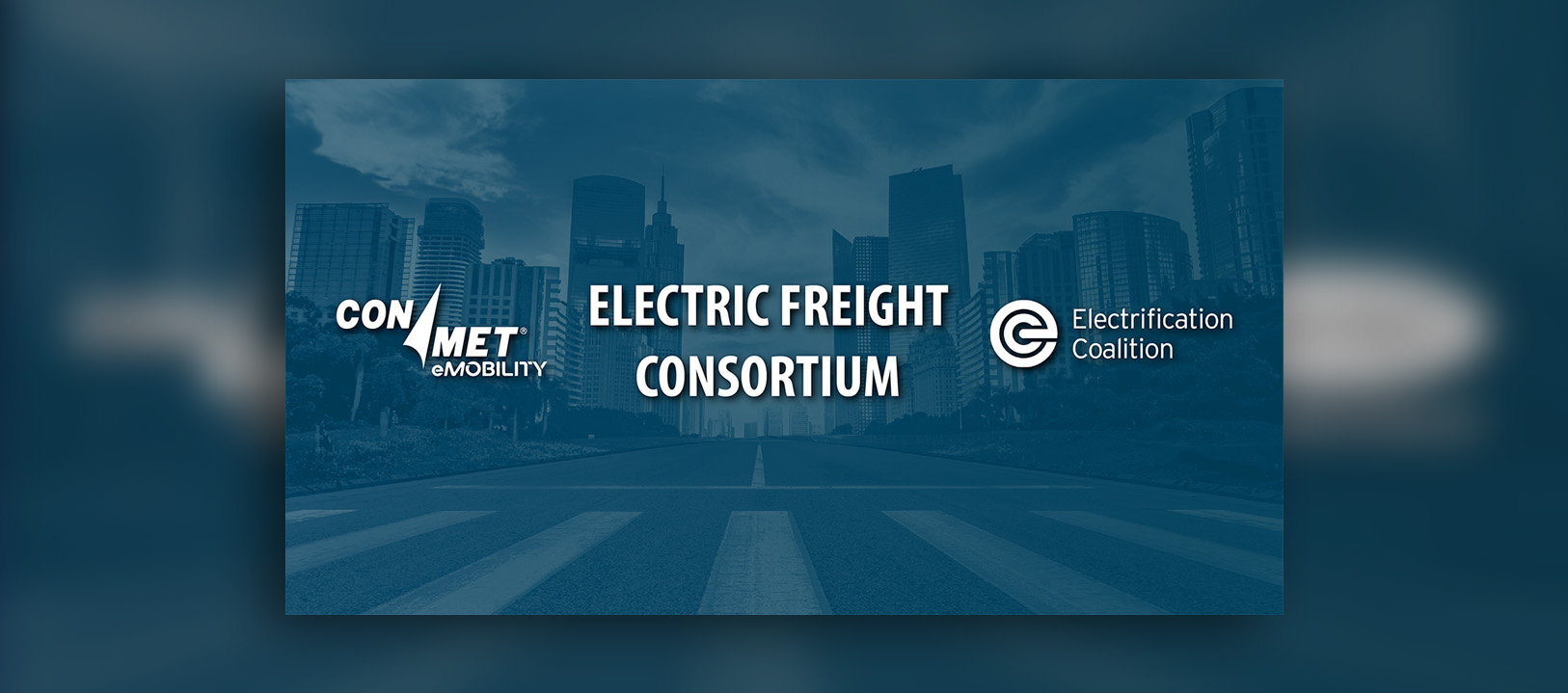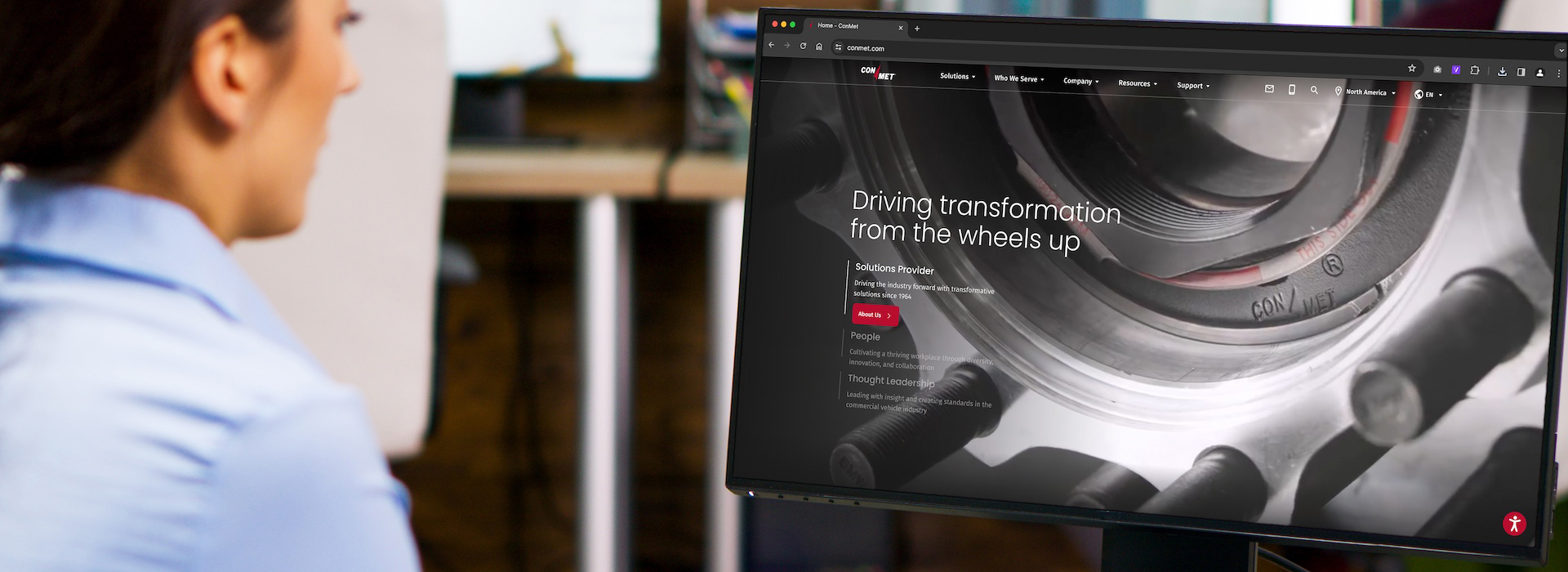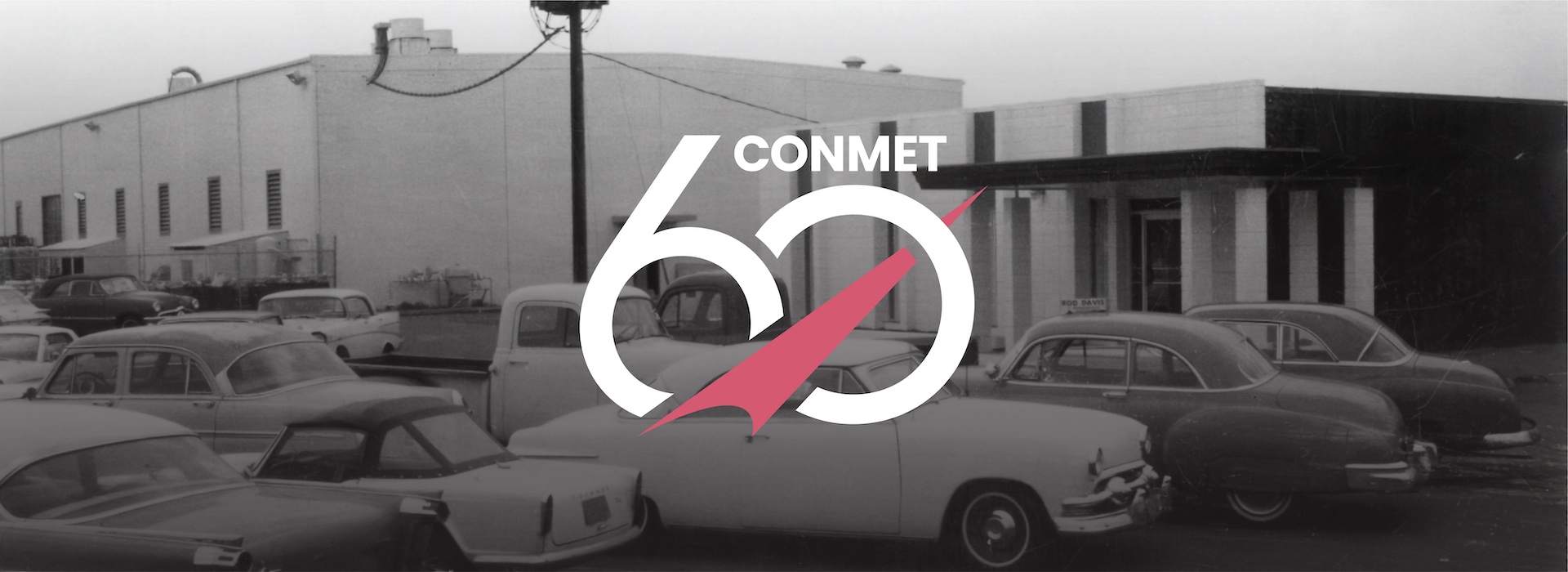WASHINGTON — In September, the Electrification Coalition (EC) announced the launch of the Electric Freight Consortium (EFC), a forum for collaboration between the EC, private-sector partners and industry leaders representing a broad cross-section of the freight transportation sector that will accelerate freight electrification at scale. The EFC will complement its innovative freight policy and pilot work by creating a new program that brings together the full fright ecosystem —shippers, carriers, retailers and electric vehicles (EV) supply chain companies—to exchange strategies, gain knowledge and engage in actions that will support the development and deployment of electrified freight vehicles and supporting infrastructure.
The EFC is spotlighted in a new video that includes EC staff and EFC members explaining the importance of electrifying freight, which can be viewed here.
The EFC builds upon the EC’s commercial freight and goods delivery electrification pilot program. Through the pilot program, the EC convened local partners and stakeholders to identify pilot project opportunities, plan implementation, diagnose challenges, develop best practices and support successful deployment. The initial motivation for the EFC arose from the pilot programs which revealed a need for a collaborative working group to address the challenges associated with freight electrification and develop business-to-business and peer-to-peer exchanges that would help to reduce the barriers to early-stage freight electrification.
EFC members will participate in and help shape working groups to facilitate detailed discussion on topics central to freight electrification deployment strategy such as policy, infrastructure, market development and more, all while leveraging the EC’s experience in policy action and EV deployment.
The EFC will work with the EC to realize the immense benefits of freight electrification. While medium- and heavy-duty vehicles represented only 6% of vehicles registered in 2018, they were responsible for 26% of the U.S. transportation sector’s petroleum consumption and 23% of the sector’s greenhouse gas emissions. Electrification of freight operations reduces dependence on oil, makes fuel costs lower and more predictable, mitigates harmful tailpipe emissions and improves air quality in historically disadvantaged communities.
“As e-commerce booms and gas prices soar, the trucks moving our goods must be clean, efficient and domestically-powered,” said Ben Prochazka, executive director of the Electrification Coalition. “The EC is eager to offer the EFC its policy expertise and lessons learned from real-world EV deployment programs. By working together, these bold, forward-thinking companies will move rapidly toward an electrified future.”
EFC participants span the entire freight electrification space, including shippers, carriers, retailers, OEMs and freight EV supply chain providers. The consortium is thus uniquely positioned to identify and advocate for a comprehensive breadth and depth of strategies to support and scale freight electrification across the United States.
“ConMet eMobility is proud to participate in collaborations like the Electric Freight Consortium, continuing our commitment to bring electric technologies to the commercial vehicle industry,” said Marc Trahand, Vice President and General Manager of ConMet eMobility.“We’re looking forward to working with other industry leaders to make meaningful progress toward achieving this shared goal.”
The EFC continues to recruit partners on a rolling basis. The EFC’s founding roster includes 16 industry leaders supportive of freight electrification:
- ABB
- Arrival
- bp pulse fleet
- ConMet
- Geotab
- GridBlock
- Ideanomics
- Lightning eMotors
- Lion Electric
- Nike
- Orange EV
- Proterra
- Schneider National
- SEA Electric
- Volta Trucks
- Volvo Group North America
About ConMet
ConMet, a division of Amsted Industries, is a leading global supplier of wheel hubs, aluminum castings, and structural plastics to original equipment manufacturers and aftermarket channels in the commercial vehicle industry. Founded in 1964, ConMet innovation has been critical in designing, engineering, and manufacturing revolutionary technologies for trucks and trailers. Today, ConMet products are standard equipment on most heavy-duty vehicles in North America and have a growing footprint worldwide.
ConMet eMobility was established in 2020 to address the needs and challenges of clean energy technology. The growing team has years of experience in electrical engineering, system controls, battery science, and more. Together with the unmatched wheel end expertise and support of ConMet, ConMet eMobility is enabling the development of zero-emission commercial vehicles, capturing, and regenerating the kinetic energy that would otherwise go wasted. For more information, visit conmet.com/emobility
Learn more about ConMet eMobility’s participation here: ConMet’s Participation
About the Electrification Coalition: The Electrification Coalition is a nonpartisan, nonprofit organization that advances policies and actions to facilitate widespread deployment and adoption of electric vehicles in order to reduce the economic, public health and national security risks caused by America’s dependence on oil.
Source: Electrification Coalition


